How to Maximize Pepper Production for More Bell Peppers
•Posted on February 16 2024
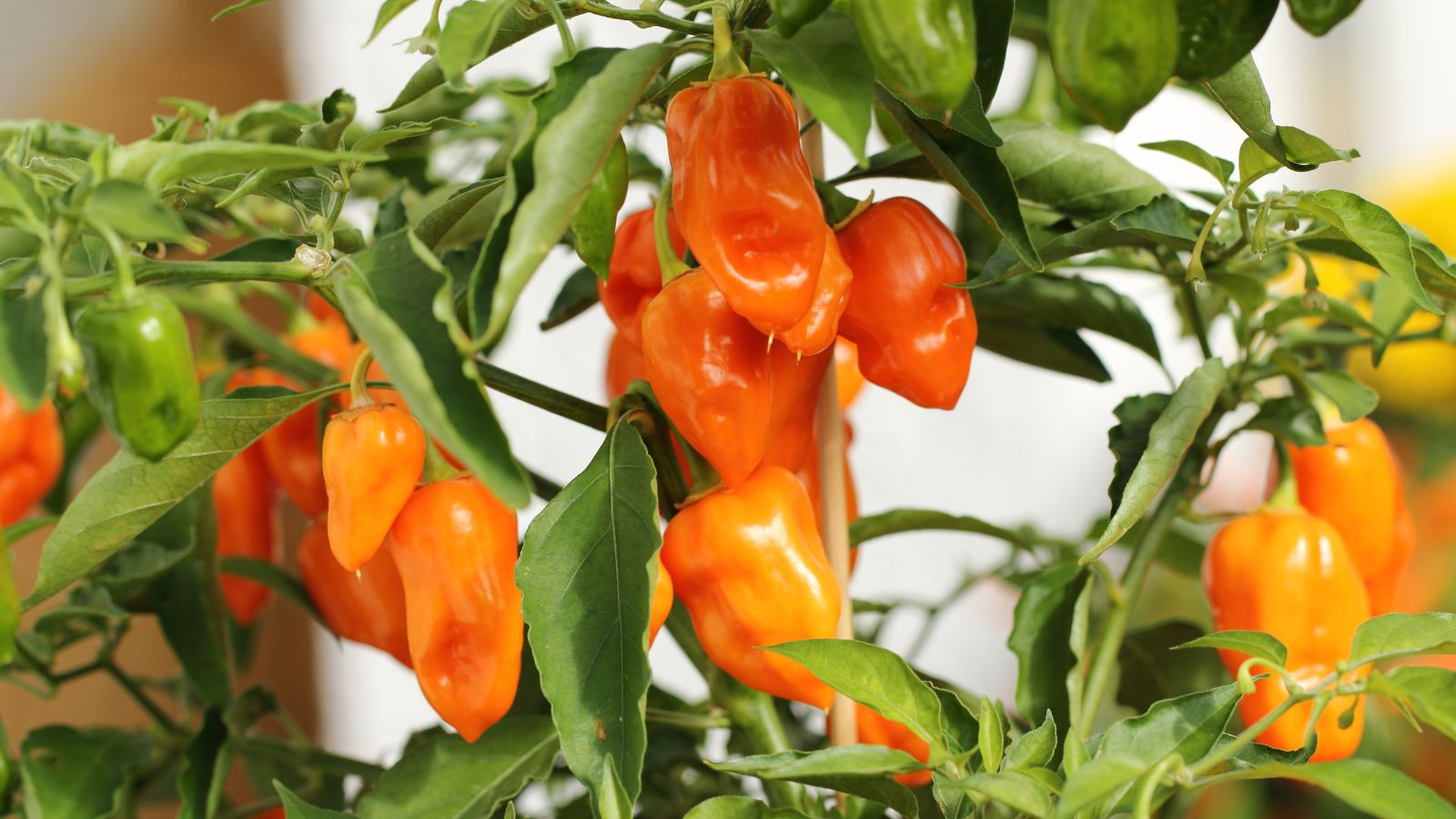
Are you an urban farmer eager to enhance your pepper harvest?
Whether you're growing capsicum annum for culinary delights or ornamental peppers for aesthetic appeal, boosting fruit yield is a common goal.
Fortunately, with the right techniques and a bit of knowledge about companion plants for peppers, you can optimize your pepper plants' productivity and turn your urban farming venture into a flourishing success.
Recommended for You:

Companion Plants for Peppers:
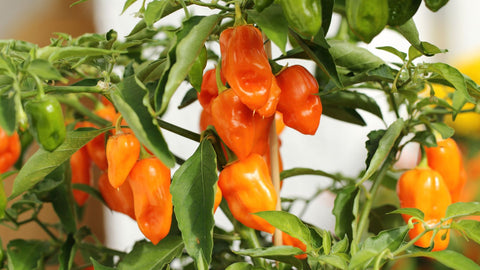
Companion planting is a strategic approach to gardening that involves growing compatible plants together to enhance growth and deter pests.
When it comes to peppers, some ideal companions include basil, tomatoes, and parsley.
Basil, for instance, repels pests like aphids and mosquitoes while enhancing the flavor of peppers when planted nearby.
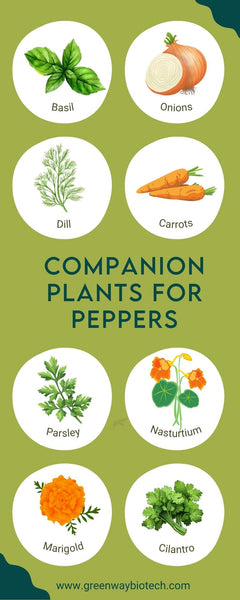
Related Post: What is the Best Fertilizer for Peppers?
Urban Farming and Growing Peppers:
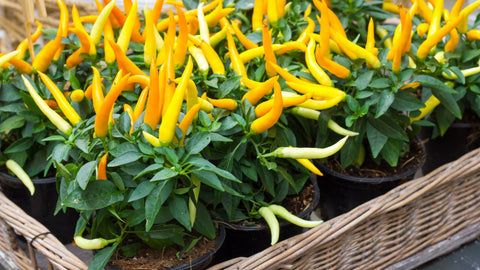
Urban farming presents unique challenges such as limited space and environmental factors.
However, with proper planning and techniques tailored to urban environments, you can successfully grow peppers even in small spaces like balconies or rooftops.
Consider growing pepper plants in pots, which allow for better control over soil conditions and drainage.
Recommended for You:

Growing Bell Pepper from Seed:
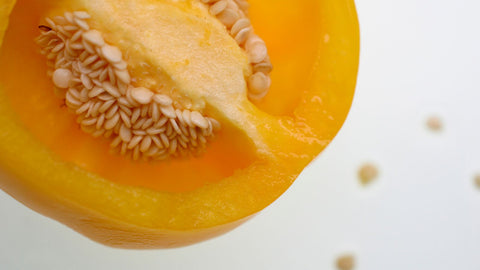
Starting your pepper plants from seeds gives you greater control over the growing process and ensures healthier, more robust plants.
When growing bell peppers from seeds, ensure they receive adequate sunlight, warmth, and moisture.
Transplant seedlings into larger containers as they grow to prevent overcrowding and stunted growth.
Related Post: What is the Best Fertilizer for Herbs?
Fertilizing Peppers for Maximum Yield:
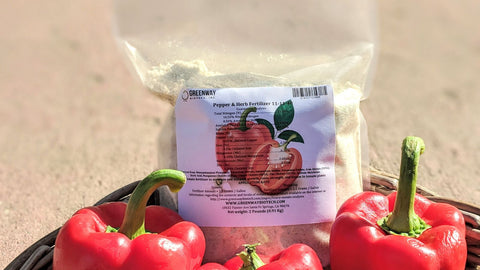
Peppers are heavy feeders, meaning they require sufficient nutrients to thrive and produce abundant fruit.
Fertilize pepper plants with a balanced fertilizer rich in nitrogen, phosphorus, and potassium.
Additionally, consider supplementing with organic fertilizers like compost, fish emulsion or fish bone meal to promote healthy soil and vigorous growth.
Recommended for You:

Is Epsom Salt Good for Peppers?
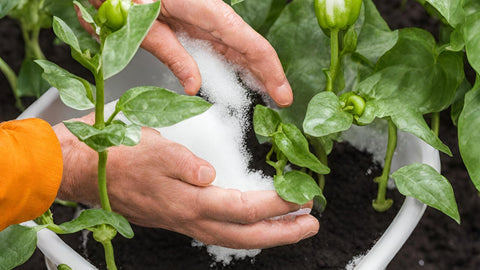
Epsom salt, a source of magnesium and sulfur, can benefit pepper plants when used sparingly.
Magnesium aids in chlorophyll production and overall plant health, while sulfur promotes enzyme activity.
However, excessive use of Epsom salt can lead to nutrient imbalances, so apply it cautiously and monitor plant response.
Related Post: How to Really Boost Your Garden With Epsom Salt
Why Are My Pepper Plants Flowering but Not Producing Peppers?
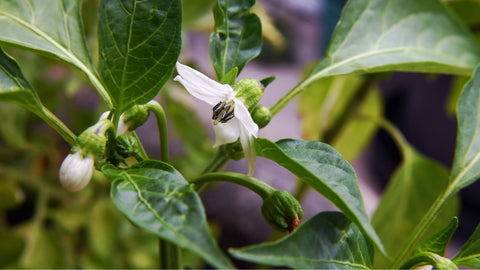
Flowering without fruit set, known as blossom drop, can occur due to various factors such as temperature fluctuations, inadequate pollination, or nutrient deficiencies.
To address this issue, ensure consistent temperatures, encourage pollinators like bees, and maintain proper fertilization and watering practices.
Recommended for You:

How Often to Water Pepper Plants:
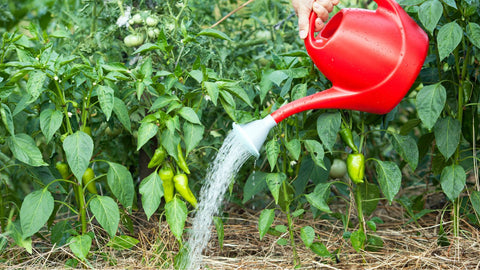
Pepper plants prefer consistent moisture levels, so aim to keep the soil evenly moist but not waterlogged.
In hot, dry climates or during periods of intense growth, pepper plants may require more frequent watering.
Monitor soil moisture levels regularly and adjust watering frequency accordingly.
Related Post: How Soil Moisture Can Effect Your Plant's Growth
In conclusion, maximizing pepper production requires careful attention to various factors such as companion planting, urban farming techniques, proper fertilization, and watering practices.
By implementing these strategies and addressing common issues like blossom drop, you can enjoy a bountiful harvest of flavorful peppers from your urban garden. Happy gardening!
Comments
0 Comments
Leave a Comment